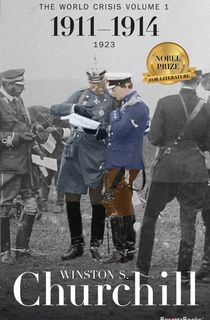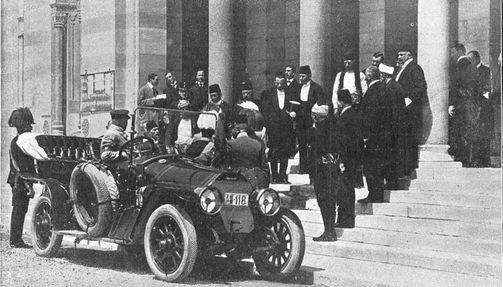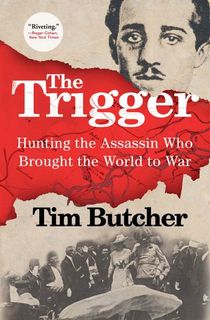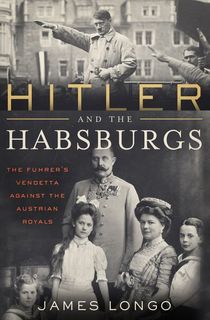When Archduke Karl Ludwig of Austria and his wife, Princess Maria Annunciata of Bourbon-Two Sicilies, welcomed a son into the world on December 18th, 1863, they likely expected a bright future in nobility and politics for their firstborn, Franz Ferdinand Carl Ludwig Joseph Maria. No one could have expected the eventual heir apparent to the Austro-Hungarian throne would fall victim to perhaps the most consequential murder of the 20th century.
In 1889, Crown Prince Rudolf committed suicide, leaving Franz Ferdinand’s father, Karl Ludwig, first in line for the throne. When Ludwig passed away seven years later, Franz Ferdinand became the heir presumptive at the age of 33, and was trained to ascend to the throne should no one else with a stronger claim come forward.
Ferdinand had always been different from his royal peers. He was known for his frankness and aloof attitude, as well as his disregard for tradition, at least when it came to his own marriage. At his best he could be seen as a man of laudable earnestness and entirely without pretension; at his worst he was a man of ugly temperament, frequently clashing with Franz Joseph, the elderly emperor and his uncle.
Categorizing Ferdinand’s political views is a debate that rages on to this day. He wished to grant greater autonomy to the many ethnic groups within the empire of Austria-Hungary, a move that could have eased one of the key struggles that fueled the Great War. Yet he openly disliked Hungarians and often fought with domestic and foreign leaders alike.
In any event, Ferdinand was certainly far from a typical noble. He spent two years traveling across Australia, Asia, and North America while he was next in line for the throne, hunting all the while. The Archduke kept track of over 270,000 kills in his diaries, keeping around 100,000 trophies for his Bohemian castle; a hobby that was considered excessive even by the standards of the time.

The World Crisis: 1911–1914
In 1894 he met Countess Sophie Chotek, a lady-in-waiting to Archduchess Isabella, and the two began a secret courtship. When their relationship was discovered, Franz Ferdinand refused to end it, despite pressure to do so. Sophie, a noblewoman who wasn’t of dynastic rank, wasn’t considered a prestigious enough match for him. Eventually a compromise was reached, in which Sophie would not share her husband’s rank or be seen in public next to him, and any children she bore would not have succession rights to the throne.

Franz Ferdinand and his wife Sophie, Duchess of Hohenberg.
Photo Credit: WikipediaOne of Franz Ferdinand’s many spats with his peers included a dispute over how the Empire should handle the neighboring and newly independent Kingdom of Serbia. The Austro-Hungarian Empire included a significant minority population of Serbs. Ferdinand wanted to be cautious going forward, fearing that harsh treatment of Serbia and its subjects would lead to open conflict with Russia. He was right to worry.
After a violent military coup in 1903, in which the king and queen of Serbia were killed, the new regime led to increased Serbian nationalism and less favorable views of the Austro-Hungarian Empire. Austria-Hungary's annexation of Bosnia, which Serbia hoped to acquire, did little to improve public opinion. Several nationalist secret societies, such as Young Bosnia, cropped up around the turn of the century with the aim of uniting South Slavs.
Related: These 17 Photos Show How Great-Grandpa Got Ready For WWI
The Black Hand, a militaristic group dedicated to founding a Greater Serbia and reclaiming “lost” land through force, overlapped with many members of Young Bosnia. Ferdinand wanted to pacify the Serbs to prevent all-out war, but the Black Hand wanted to push forward with a bloody revolution.
In June of 1914, Franz Ferdinand was on a trip to inspect the military in Bosnia, a province of the empire. There, he made a stop in Sarajevo to visit a new museum. A legal loophole allowed his wife to sit beside him when on military duty, so Sophie travelled alongside the Archduke in an open carriage. Several assassins from Young Bosnia and the Black Hand were waiting for them.
Most of the assassins, armed with pistols and bombs, failed to act as the Archduke’s motorcade passed by. One threw a bomb—wounding several onlookers and the people in the car behind the Archduke’s—but his attempted suicide failed, and he was detained. The other would-be assassins also failed to act as the motorcade sped by.

The Archduke and Duchess meet with officials in Sarajevo after the first attempt on their lives.
Photo Credit: WikipediaThe Archduke and the Duchess’s plans were changed to visit those wounded in the hospital, with a new route to avoid the crowded city center. The route was not relayed to Ferdinand’s driver, however, who took a wrong turn. As someone called for the driver to reverse, the car came to a stop right in front of 19-year-old Gavrilo Princip, a member of Young Bosnia who was trained by the Black Hand. Princip managed to approach and shot Franz Ferdinand and Sophie from point-blank range; they were pronounced dead later that day. Princip was later sentenced to 20 years in prison for the double homicide, a relatively light sentence due to his youth; he died in prison of tuberculosis.

The Trigger
In response to the murders, royal members expressed their shock and deadly anti-Serb riots broke out in Sarajevo and throughout the empire. Tensions between Austria-Hungary and Serbia were raised to new heights, and after non-violent border conflict was misreported as a “considerable skirmish”, Emperor Franz Joseph declared war on Serbia and mobilized troops. This set forth a domino effect of pacts and alliances, some secret and some public knowledge.
Russia backed Serbia, and along with France was obligated to mobilize troops if any member of the Triple Alliance—Germany, Italy, and Austria-Hungary—mobilized theirs. Germany then declared war on Russia and France and invaded Belgium, which brought the United Kingdom into play. Within six weeks of Princip’s pistol firing, five of the six great powers of Europe were arranged into two coalitions that were at war with each other.
Related: 22 World War 1 Movies That Take Viewers into the Trenches
The issue had moved well beyond revenge for Franz Ferdinand’s death: decades of ethnic strife, polarization, alliances, and imperialism had steadily set up a continent-wide standoff ready to escalate at a moment’s notice. Franz Ferdinand’s death ended up being the catalyst for that standoff. All told, it’s unlikely that war would have been avoided even had no attempt on the Archduke’s life been made, such were the deep-rooted entanglements and complexities of European politics at the time. Historians can only speculate how the war would have unfolded, however, had Franz Ferdinand’s driver not made that wrong turn on the streets of Sarajevo a century ago.

Hitler and the Habsburgs
Sources: History.com
